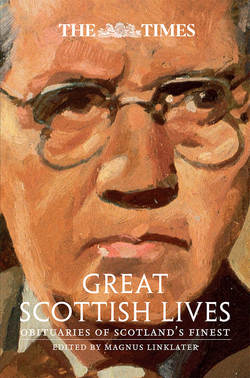Читать книгу The Times Great Scottish Lives: Obituaries of Scotland’s Finest - Magnus Linklater, Magnus Linklater - Страница 19
ОглавлениеKeir Hardie
Founder of the Labour Party who led a stormy political career
27 September 1915
Mr. J. Keir Hardie, Labour M.P. for Merthyr Tydvil, died from pneumonia after a long period of ill-health in a Glasgow nursing home yesterday. Born in Scotland in 1856, he was engaged in mining work from the age of seven to that of 24. He was elected secretary of the Lanarkshire Miners Union in 1880, and at once threw himself with great zeal and little discretion into the work of a trade unionist and political agitator. He attempted to secure election to Parliament as a Labour candidate for Mid-Lanark in 1888, but was badly beaten. At the General Election four years later, however, he was elected for South-West Ham, and made his first appearance at St. Stephen’s in circumstances which necessitated the interference of the police. He was defeated in West Ham in 1895, but at the General Election of 1900 was elected for Merthyr Tydvil, which remained faithful to him until his death. He was for many years chairman, and throughout his political career the obvious leader, of the Socialist body known as the Independent Labour Party. When the Labour Party became a distinct group in the House of Commons in 1906 he was elected its first chairman, and held the position for two Sessions.
For over 20 years Mr. Keir Hardie was regarded as the most extreme of British politicians. The hard and narrow environment of his youth predisposed him to take a gloomy view of the state of society, and sympathy for suffering humanity, he was one of those men who spend their lives in expressing the views of a minority. He certainly spent his public life in advocating unpopular causes. He did not hide his republican opinions; he was one of the strongest opponents of the South African War; he made speeches during a tour in India in 1907 which, in view of the unrest prevailing at the time, could only be branded as mischievous; and he was the most pronounced of all the pacifists before the outbreak of the European War. He was probably the most abused politician of his time, though held in something like veneration by uncompromising Socialists, and no speaker has had more meetings broken up in more continents than he.
Although showing courage in some of his earlier adventures in the House of Commons, when he constituted a Socialist party of one, he never caught the ear of that Assembly, and was an ineffective leader of the independent group which owed its existence in great measure to his unflagging energy. He did much good and unselfish work for Labour causes, but did not at any time gain the complete confidence of the working class. The Labour Party disappointed his hopes. He was out of tune with the more moderate views of the trade unionist majority for a considerable time, and his views ceased to have any influence in the councils of the party with the coming of the war. His health was declining and his voice has been hardly heard since the collapse of International Socialism in August, 1914. He seems to have accepted the war with resignation, and the bitter passions which he aroused in his life were in great measure forgotten before his death.
